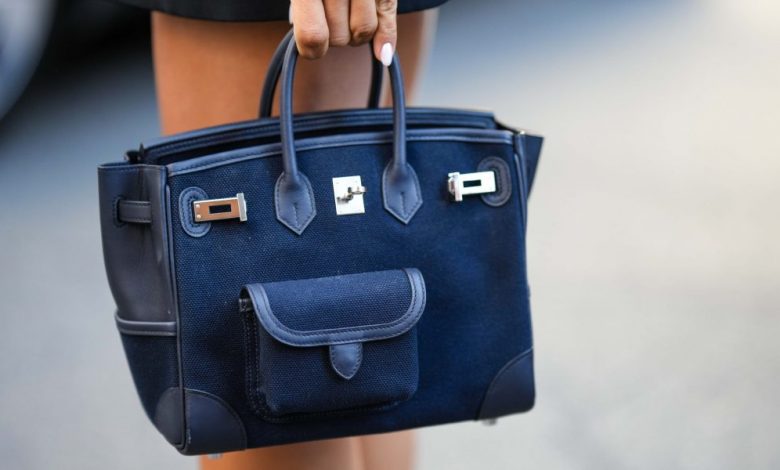Luxury stocks have the kind of momentum that Big Tech had in the 2021 bull market. France does not complain

French stocks are the breakout stars of 2023, driven by the unrelenting momentum behind luxury goods makers LVMH, Kering and Hermes International.
The benchmark CAC 40 index is up 14% this year, outperforming other major markets and on the verge of surpassing the record high set in January 2022. The trio of luxury companies, plus cosmetics maker L’Oreal SA, account for more than a third of profits. Investors are betting their sales and earnings will hold up after a key market, China, reopens for business.
For now, the rally has confused skeptics who had expected rising inflation, rising interest rates, China’s pandemic lockdown and the specter of a possible recession to finally bring stock prices back down to earth. Luxury stocks are showing the kind of momentum that big tech companies had in the 2021 bull market.
“Luxury stocks have been an investor favorite for some time, but the fact that the big tech stocks don’t have much wind in their sails right now puts them in the spotlight, especially with the reopening of the Chinese economy,” said Roland Kaloyan, head of Europe Equity strategy at Societe Generale SA.
The CAC’s gains this year match those of the Nasdaq 100 Index, the high-octane benchmark for technology stocks in the US. Yet even as rising interest rates and declining sales weighed on tech prospects, luxury has pushed ahead. Demand for clothing, handbags, champagne, watches and perfumes continued, and manufacturers had no trouble raising prices and fighting inflation.
Chinese consumers, forced to stay at home due to the government’s Covid-zero policy, saved a third of their income last year and deposited 17.8 trillion yuan ($2.6 trillion) in banks, from which investors hope will be partially converted into leather handbags worth thousands of dollars.
“Demand for luxury goods, unlike mass-market consumption, has been little affected by the pressures of rising inflation, as the wealthiest households have benefited from rising wealth in recent years and also from a huge stock of excess cash savings accumulated during the lockdown Covid periods,” said Edmund Shing, global chief investment officer at BNP Paribas Wealth Management.
In addition to luxury stocks, industrials companies Schneider Electric SE – another beneficiary of China – and Air Liquide SA were major contributors to the rise, as was Vinci SA, a builder and toll road operator. Financials also account for nearly 10% of the CAC’s weighting and its three banks are up 19% or more, led by BNP Paribas SA.
France’s banking sector is becoming increasingly attractive given its low valuations and rising interest rates, said Kevin Thozet, a member of the investment committee at Carmignac Gestion in Paris.
Even after this year’s gains, the CAC is valued at less than 13 times estimated earnings, below its 10-year moving average of 14, encouraging fund managers that gains for the broader market need to go further.
While the broader French market still looks relatively cheap, concerns are creeping in that luxury in particular is too expensive. Societe Generale’s Kaloyan recently downgraded the sector to neutral after its relative valuation multiples rose back to historic highs.
Investors rate LVMH and Hermes above their average 10-year earnings multiple, while Kering is average. Analysts also see relatively little upside for the group — their aggregate price targets imply a 4.4% gain for LVMH stock over the next year, a 5.7% rise for Kering and a 9.6% decline for Hermes.
Still, earnings reports over the past few weeks have shown that while investors had sky-high expectations for these stocks, they were willing to look past mild headwinds and focus on evidence that Chinese sales are recovering from pandemic lockdowns.
LVMH, for example, last month reported second-half operating profit margins that were lower than analysts had expected, yet the stock recouped losses on the day to finish flat. It closed at a record high on February 3.
Kering shares ended the day up 3% on Wednesday, reversing an initial 4.8% decline. Investors were quick to look past worse-than-expected fourth-quarter sales and troubles at the Gucci and Balenciaga brands to double down on the prospects for a recovery in China as the country’s economy gets back on track. And on Friday, Hermes fell as much as 2.1% after gains, only to erase the decline in late trade.
The resilience and scale of the luxury industry – LVMH is Europe’s largest company with a market value of $439 billion – means France is above its weight in relation to global markets. While it is the seventh largest economy in the world in terms of gross domestic product, it is the fifth largest stock market and the largest in Europe, a crown it took from the UK last year.
Learn how to navigate and build trust in your organization with The Trust Factor, a weekly newsletter exploring what leaders need to succeed. Login here.



